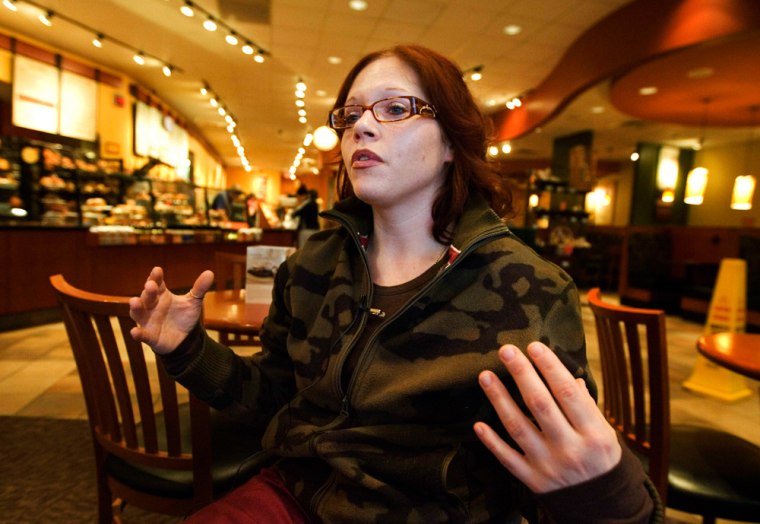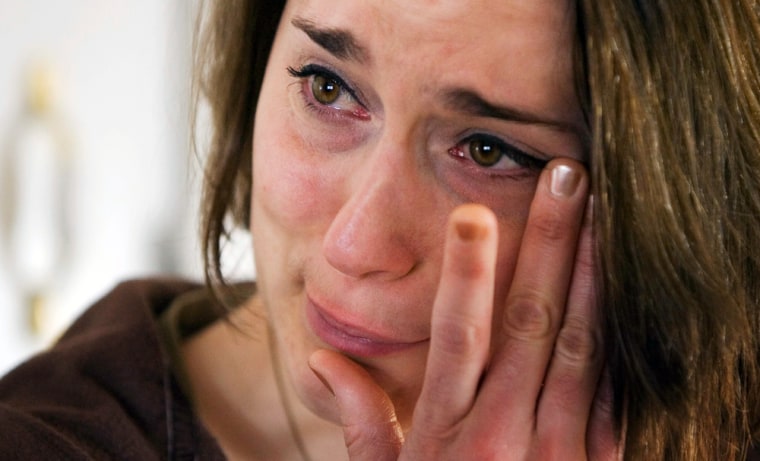For Sens. Hillary Rodham Clinton and Barack Obama, vital to getting the edge in military service-oriented but war-weary Pennsylvania is figuring out how to pull U.S. forces out of Iraq without dragging the flag in the process.
Trailing in delegates, Clinton has staked her candidacy on a strong showing in Pennsylvania's April 22 primary. Obama has eroded Clinton's lead in several state polls and an upset could irrevocably damage her candidacy.
Both candidates promise to end the war, but in a state with a remarkable history of venerating military service, how that end should be achieved weighs heavily with many voters. Polling shows Democratic voters overwhelmingly disapprove of the war. What divides them is a quick withdrawal versus a longer drawdown of troops.
For many voters, the anger over the war that helped push five Pennsylvania GOP lawmakers out of office in 2006 has turned to almost a resigned acceptance that little will change quickly.
"It's much bigger than one person. Whoever gets to be president, I've been telling everybody, will have an uphill battle to climb," said Krista McKeon, 37, whose husband is with a Pennsylvania Army National Guard unit serving in Iraq.
Military service is commonplace in communities across the state. During World War II, one in seven U.S. war fighters was from Pennsylvania. The state sustained heavy casualties then, and later in Vietnam. Today, one in 10 residents is a veteran.
From Philadelphia to Erie
Since the Sept. 11, 2001 terrorist attacks, 17,000 members of the 19,000-member Pennsylvania National Guard have deployed in support of the nation's war on terror. About 6,000 troops assigned to armories from Philadelphia to Erie have been alerted that they could be leaving for Iraq early next year in what would be the Pennsylvania Guard's largest Iraq deployment yet.
Service to country and patriotism are particularly evident in Allentown, about an hour's drive from Philadelphia. During the American Revolution, townspeople hid the Liberty Bell from the British in the still existing Zion's Reformed Church of Christ.
Each year, a group called the "Honorary First Defenders," named after area troops who were said to be the first to reach the U.S. Capitol in 1861 to protect it from Confederate forces, gathers to pay tribute to Allentown's only Medal of Honor recipient.
'We've lost so many for what?'
Sgt. Candice Gerber joined the Pennsylvania Guard in 2004 because she wanted to help with the war effort. She spent a year in Ramadi, Iraq, as a medic, where she saw young soldiers killed and maimed. Now, she's torn about what should happen next.

"I don't really think we should call it a done deal and come home tomorrow morning, but I don't feel we should be there for the next 50 years either. ... We've lost so many, but if we come home now it's we've lost so many for what?" said Gerber, 30, as she sipped coffee in an Allentown cafe.
In a recent Quinnipiac University poll, 84 percent of likely Democratic voters in Pennsylvania said going to war in Iraq was the wrong thing to do. That's similar to Democrats nationally, but higher than the roughly two-thirds of all voters who say it was the wrong thing.
And, 58 percent of likely Pennsylvania Democrats said a timetable should be set for withdrawal, while nearly a third — 29 percent — said troops should be immediately withdrawn.
Clinton is perceived by Pennsylvania's conservative Democrats to have a more cautious, less liberal approach to withdrawing troops than Obama, and that could be a factor in why she's ahead in polls, said Clay Richards, a pollster with Quinnipiac. Both candidates support a phased withdrawal of troops.
"It's kind of a strange dichotomy that they are more skeptical about the war on one hand, and they question why we're there and what we're doing," Richards said. "But on the other hand, there's a built-in patriotism that is not found in other states to the degree that it exists in Pennsylvania."
Nearly 200 troops with ties to Pennsylvania have died in Iraq. More than a thousand troops have come home to Pennsylvania wounded, often to small towns where jobs are scarce.
McKeon, an unaffiliated voter who lives 15 miles north of Allentown in Nazareth, refuses to take down the weathered yellow ribbons tied to trees outside her house along a country road.
The night her husband, Capt. Keith McKeon, told their two daughters, ages 10 and 6, that he was headed to Iraq, the family cried. In the year since he's left, the tears haven't stopped as they worry about his safety. She said she figures her husband will likely be called to more deployments in the future.
"The status of Iraq right now is too vulnerable, it's too volatile. Whoever gets in, they decide they want to pull everybody out, that could be a little bit dangerous. All the hard work that these soldiers have done, I really worry that it would be in jeopardy," McKeon said, pausing. "I believe the candidates are intelligent enough to realize that."
Candidates focus on veterans
Both candidates have held events in Pennsylvania focused on veterans. Clinton recently held a town-hall meeting with retired military officers in western Pennsylvania, telling them: "One candidate only says he'll end the war. And one candidate is ready, willing and able to end the war."
At nearly every stop on a recent Pennsylvania bus tour, Obama talked of his desire for a strong military and to take care of veterans. He frequently reminds voters that Clinton voted in 2002 to give President Bush the authority to use military force to oust Saddam Hussein.
That's not enough to win over Nathan Kline, 83, of Macungie, a retired Air Force major who flew more than 60 missions in World War II. What has resonated with Kline is Clinton's television ad in which a phone rings in the White House at 3 a.m. and Clinton answers the phone in a crisis.
"No matter how you cut it, he doesn't have the experience," Kline said of Obama. "He's young and his political life has been relatively short."
Gerald Smith, 26, a former Penn State University football player who recently moved to Allentown for a business opportunity, said it's a toss-up as to which candidate would be better at ending the war, but he plans to vote for Obama because he's a fresh voice and he's confident he'll have good military advisers.
Smith said he knows two people who fought in Iraq, and one was injured by shrapnel.
"You just hope that all these deaths that keep piling up is for some great reason that we will see sooner than later, something we can definitely look back and say this is why 4,000 people had to die for this. Hopefully it can be meaningful," Smith said. "And right now, it ain't looking too good."
